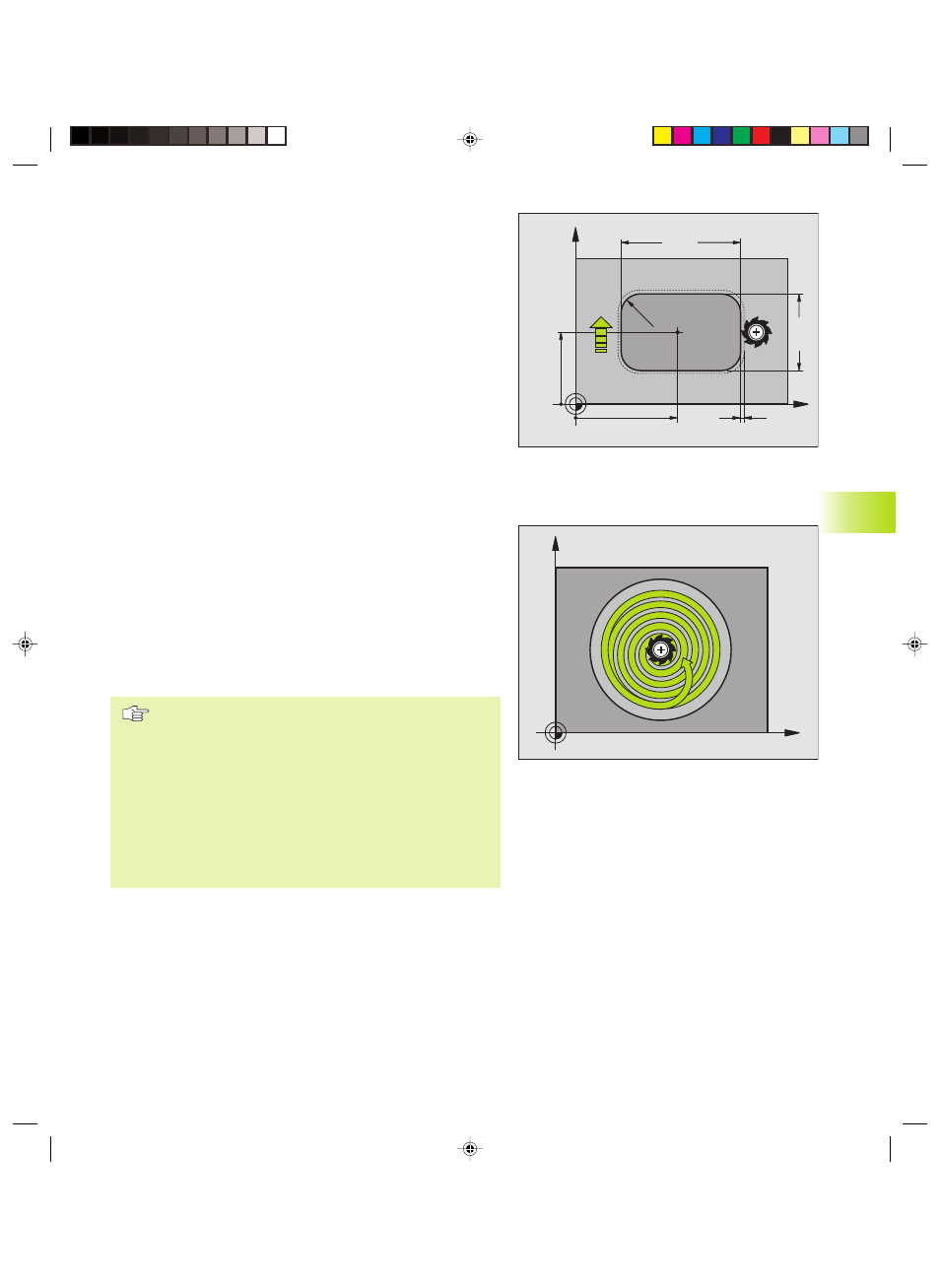HEIDENHAIN TNC 426B (280 472) ISO programming User Manual
Page 191

175
HEIDENHAIN TNC 410, TNC 426, TNC 430
ú
2nd set-up clearance Q204 (incremental value):
Coordinate in the tool axis at which no collision
between tool and workpiece (clamping devices) can
occur.
ú
Center in 1st axis Q216 (absolute value): Center of the
stud in the main axis of the working plane
ú
Center in 2nd axis Q217 (absolute value): Center of the
stud in the secondary axis of the working plane
ú
First side length Q218 (incremental value): Stud
length, parallel to the main axis of the working plane
ú
Second side length Q219 (incremental value): Stud
length, parallel to the secondary axis of the working
plane
ú
Corner radius Q220: Radius of the stud corner
ú
Allowance in 1st axis Q221 (incremental value):
Allowance in the main axis of the working plane
referenced to the length of the stud.
CIRCULAR POCKET MILLING (Cycles G77, G78)
1 The tool penetrates the workpiece at the starting position (pocket
center) and advances to the first plunging depth.
2 The tool subsequently follows a spiral path at the feed rate F —
see figure at right. For calculating the stepover factor k, see Cycle
G75/G76 POCKET MILLING.
3 This process is repeated until the depth is reached.
4 At the end of the cycle, the TNC retracts the tool to the starting
position.
Before programming, note the following:
Program a positioning block for the starting point (pocket
center) in the working plane with RADIUS
COMPENSATION G40.
Program a positioning block for the starting point in the
tool axis (set-up clearance above the workpiece surface).
The algebraic sign for the depth parameter determines
the working direction.
This cycle requires a center-cut end mill (ISO 1641), or
pilot drilling at the pocket center.
Direction of rotation during rough-out
■
In clockwise direction: G77
■
In counterclockwise direction: G78
X
Y
Q219
Q218
Q217
Q216
Q207
Q221
Q220
8.4 Cy
cles f
or Milling P
o
c
k
ets,
St
uds and Slots
X
Y
Kkap8.pm6
29.06.2006, 08:06
175
